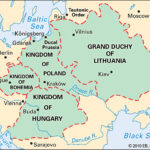Proverbs 29:18 is a powerful and often quoted verse from the Bible: “Where there is no vision, the people perish: but he that keepeth the law, happy is he.” This proverb, part of the wisdom literature traditionally attributed to King Solomon, speaks to the critical need for direction and divine guidance in both individual lives and societies. To fully grasp its meaning, we need to explore its components and context within the broader biblical narrative.
Decoding “Vision” in Proverbs 29:18
The term “vision” (חָזוֹן – chazon in Hebrew) in this verse is not simply about foresight or strategic planning in a secular sense. Within a biblical context, “vision” frequently refers to divine revelation, prophetic insight, or a clear understanding of God’s will. Throughout the Old Testament, prophets like Isaiah and Ezekiel received visions from God, which served to direct and instruct the people of Israel. These divine visions were crucial for navigating both spiritual and practical challenges. Consider examples such as Isaiah 1:1, which introduces “The vision of Isaiah,” or Ezekiel 1:1, detailing Ezekiel’s visions of God.
Historically, the absence of such “vision” in Israelite society often correlated with periods of moral and spiritual decline. The Book of Judges, particularly Judges 21:25, notes, “In those days there was no king in Israel: every man did that which was right in his own eyes.” This lack of central, God-ordained leadership and prophetic guidance led to societal chaos and moral ambiguity. Therefore, “no vision” in Proverbs 29:18 signifies a lack of divine direction, leaving people without a moral compass or a sense of collective purpose rooted in God’s will.
“The People Cast Off Restraint”: Consequences of Visionlessness
The phrase “the people perish” in the King James Version is more accurately translated as “the people cast off restraint” or “become ungovernable.” The Hebrew word translated here (יִפָּרַע – yippara) suggests a state of being unrestrained, uncontrolled, or even lawless. This interpretation aligns more closely with the historical examples within the Bible. When divine guidance is absent, people tend to act according to their own desires and impulses, often leading to societal breakdown and sin.
A stark example of this is found in Exodus 32:25, describing the Israelites’ behavior while Moses was on Mount Sinai: “And when Moses saw that the people were naked; (for Aaron had made them naked unto their shame among their enemies:).” The lack of Moses’ leadership and divine presence resulted in unrestrained behavior and idolatry. This “casting off restraint” is not merely physical destruction, but a deeper societal decay characterized by moral chaos and a lack of spiritual direction.
The Blessing of Keeping the Law
The second part of Proverbs 29:18 provides a contrasting path: “but blessed is he who keeps the Law.” “The Law” (תּוֹרָה – Torah) refers to God’s instructions given to Israel, primarily through Moses. Keeping the Law signifies obedience to God’s commandments and aligning oneself with His revealed will. This obedience is presented as the antidote to the chaos of visionlessness and the path to blessing and stability.
Psalm 1:1-3 beautifully illustrates this principle: “Blessed is the man that walketh not in the counsel of the ungodly… But his delight is in the law of the LORD; and in his law doth he meditate day and night. And he shall be like a tree planted by the rivers of water, that bringeth forth his fruit in his season.” The Law serves as a guide for righteous living, providing the “vision” that prevents societal and individual decay.
In the New Testament, while the emphasis shifts to grace and faith in Jesus Christ, the principle of divine guidance remains. Jesus himself stated in Matthew 5:17, “Think not that I am come to destroy the law, or the prophets: I am not come to destroy, but to fulfil.” For Christians, Jesus embodies and fulfills the Law, offering a pathway to live according to God’s will through faith and the Holy Spirit.
Modern Relevance of Vision and Guidance
Proverbs 29:18 is not confined to ancient Israel; its wisdom is timeless. In contemporary terms, “vision” can be understood as a guiding set of principles, values, and a clear sense of purpose, whether for an individual, a community, or a nation. Without a shared vision rooted in sound moral and ethical foundations, societies can indeed “cast off restraint” and descend into chaos.
This verse highlights the importance of leadership that provides ethical direction and inspires a sense of collective purpose. It underscores the need for individuals to seek guidance beyond their own limited perspectives, looking to established wisdom, moral frameworks, and, for those of faith, divine revelation. Whether through scripture, spiritual practices, or engagement with ethical traditions, cultivating “vision” in our lives and communities remains crucial for well-being and flourishing.
Conclusion: Embracing Vision for Flourishing
Proverbs 29:18 delivers a profound message: “Where there is no vision, the people perish; but blessed is he who keeps the law.” It is a call to recognize the vital role of divine or ethical guidance in preventing societal and individual decay. By understanding “vision” as more than just foresight, but as a moral and spiritual compass, and by embracing principles of righteousness and order, individuals and communities can move towards stability, purpose, and genuine blessing. This ancient proverb continues to resonate, urging us to seek and cherish vision in our lives and in the world around us.

